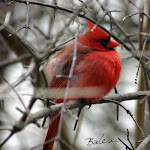
Trees have fruits for one reason. They need animals to eat them and spread the seeds they contain. It doesn't do the plant any good if the fruit gets eaten before the seeds inside are mature. That's why unripe fruit doesn't taste very good. In the case of persimmons, the "not ready for prime time" fruit is quite bitter. It'll pucker you.
Captain John Smith, the leader of the Jamestown colony in Virginia, wrote about persimmons in 1624. He reported that, "if it not ripe, it will draw a mans mouth awry, with much torment, but when it is ripe, it is as delicious as an apricot."
Smith learned about persimmons from the tribe of Pocahontas, the Powhatan Indians, who called the coin-sized fruit "putchamins." Over the course of time, our lackadaisical English speaking tongues transformed putchamins into persimmons.
The puckeriness of the unripe persimmon is caused by tannin, an astringent that tightens tissue. As the fruit changes from green to yellow to reddish-orange the taste changes as well. The production of tannin ceases and the flow of natural sugars begins. A ripe persimmon is squishy and is bursting with sweet fluid pulp, dark amber in color. To find the ripe ones, just give the tree a good shake and they'll fall off.
•



































































No comments:
Post a Comment